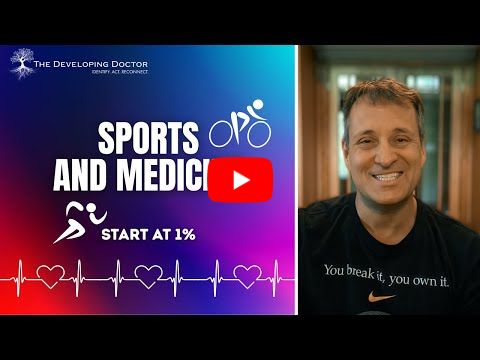The Physician’s Pivot

Remember those late nights in the library during pre-med? The birthday parties missed during residency? The first holiday you spent in the hospital instead of with family?
“It’ll all be worth it when…” — how many times did you use that phrase (or something similar) to push through?
As physicians, we’re champions of delayed gratification. We put our heads down and grind through pre-med, medical school, and the sleep-deprived haze of residency. We convince ourselves that happiness awaits at the next milestone.
“I’ll be happy when I match.
“I’ll be happy when I’m an attending.”
“I’ll be happy when the loans are paid off.”
Then one day, you’ve arrived. You’ve reached the promised land of attending-hood. You take a big breath, look around, and wonder
“Is this it? Is this what I sacrificed a decade of my life for?”
The problem is that when we finally reach this phase of our careers, we have no roadmap.
Our training taught us how to sacrifice and work hard. Even for positions that allow breathing room, it is hard to let go of the idea that work must always come first and take advantage of downtime.
“Insanity is doing the same thing repeatedly and expecting different results.”
— Albert Einstein
Einstein wasn’t talking about physicians specifically, but he might as well have been.
How many of us keep pushing through burnout, keep accepting more patients, keep sacrificing our wellbeing — all while hoping things will magically improve?
Coach's Corner
THE REFRAME TECHNIQUE
I’m not here to promise that a simple exercise will fix a broken healthcare system or immediately transform itansform your 80-hour workweek into a fulfilling 40.
Let’s be real: some problems need more than mindset work.
But what this exercise will do is help you see your situation through a different lens, and sometimes that’s exactly the catalyst you need to find a path forward.
The Circumstance–Thought–Feeling–Action–Result Framework
This powerful tool from the Life Coach School helps you understand how your thoughts about a situation, not just the situation itself, drive your experience.
Step 1: Break down your current frustration
- Circumstance: Just the facts. No emotion.
Example: “My clinic is overbooked by two patients on Monday.” - Thoughts: What you think about these facts.
“Why did I allow this? This is going to be terrible.” - Feelings: Emotions triggered by those thoughts.
“Frustrated, angry, already behind.” - Actions: What you do based on these feelings.
“Go to work irritated, delay prep work.” - Results: The outcome of these actions.
“Setting myself up for a miserable Monday.”
Step 2: Reverse engineer a better outcome
- Desired Result: “I want Monday to be manageable and leave on time.”
- Necessary Actions: “Prepare notes today, arrive early to prep.”
- Supportive Feelings: “Determined, proactive, in control.”
- Thoughts to Generate These Feelings: “I can control how I prepare for challenges.”
Try this with your current situation. Whether it’s salary frustrations, lack of family time, or insufficient recognition — reframing won’t magically fix the external circumstances, but it might just show you a door you hadn’t noticed before.
READY FOR A DIFFERENT CONVERSATION?
If you’ve tried reframing but still feel stuck, or if you just want someone who gets it to talk to — I’m here.
As a physician who’s walked the path from frustration to fulfillment, I offer free 30-minute coaching consultations for colleagues who are wondering “what’s next?”
Whether that’s finding joy in medicine again or exploring completely different paths, let’s talk.
Because the best time to plant a tree was twenty years ago, but the second-best time is today.
Until next week,
Ben
More Resources to Support Your Journey
|
 |
Blog - The Developing Doctor The Developing Doctor's physician blog explores burnout, wellness, coaching, and professional growth. Empower your medical career! thedevelopingdoctor.com |







Responses